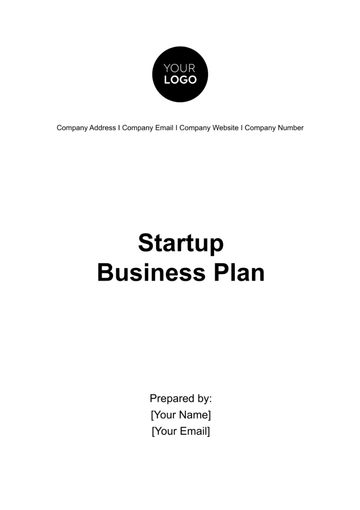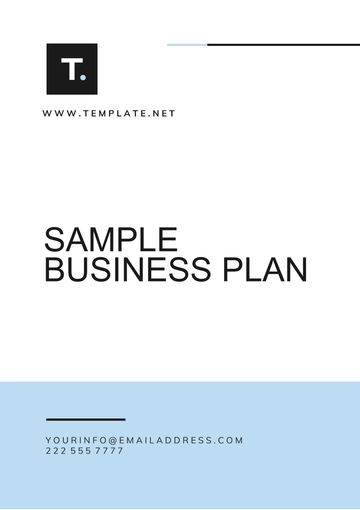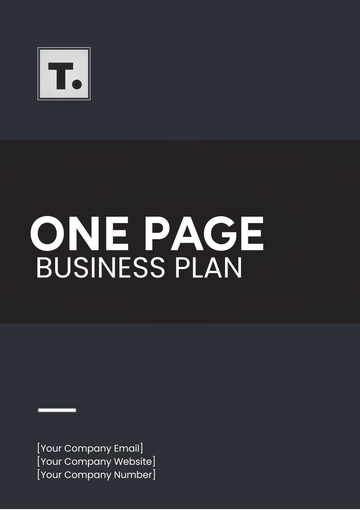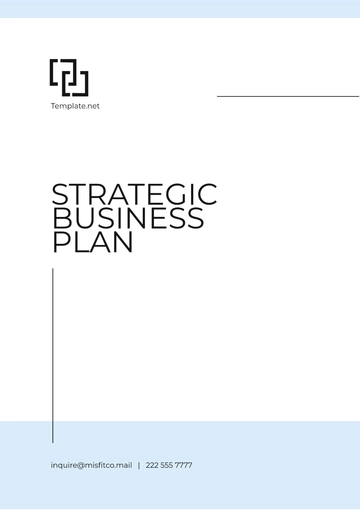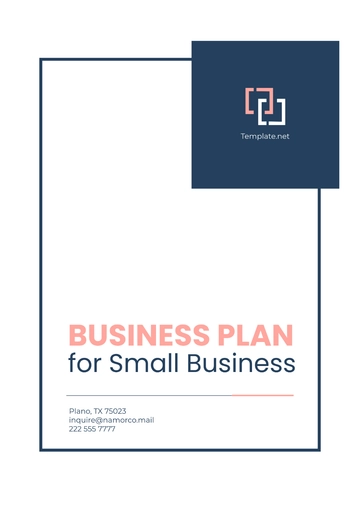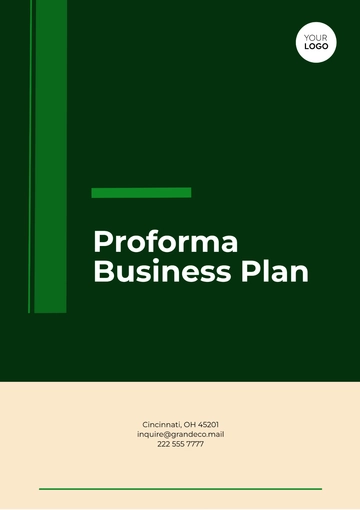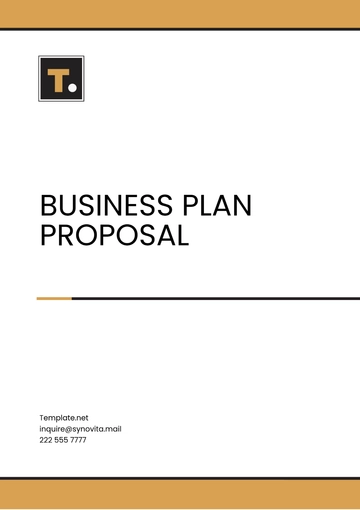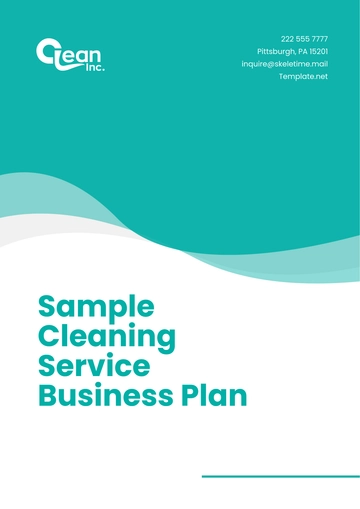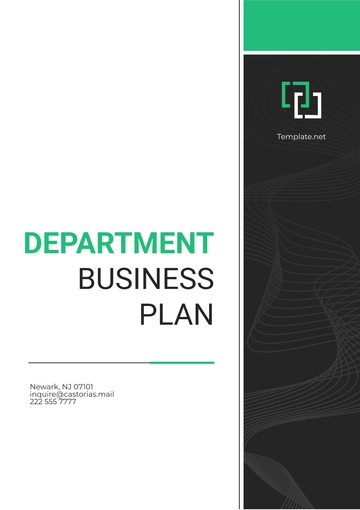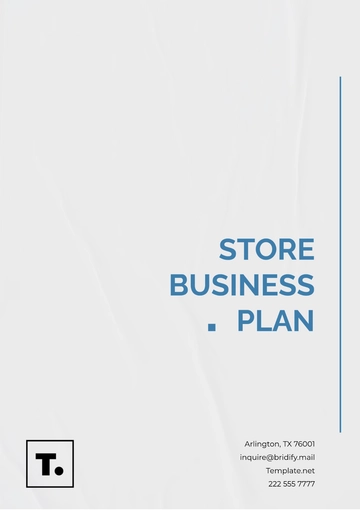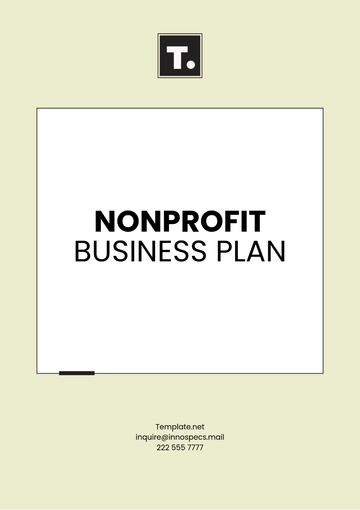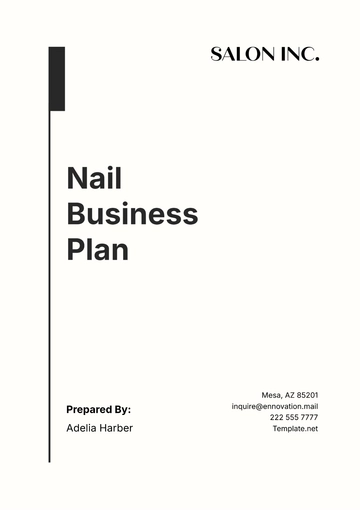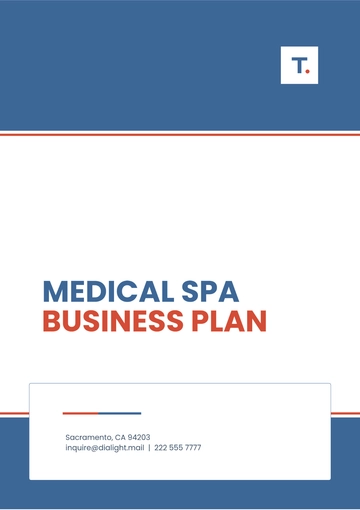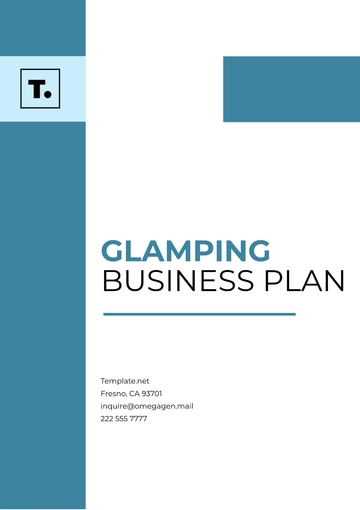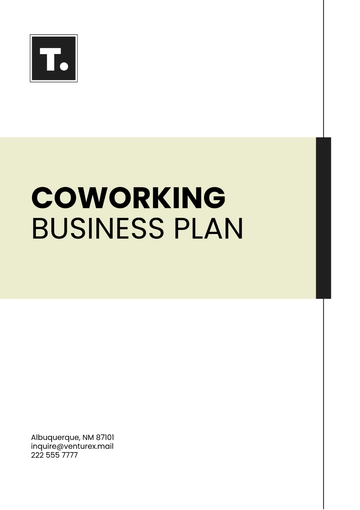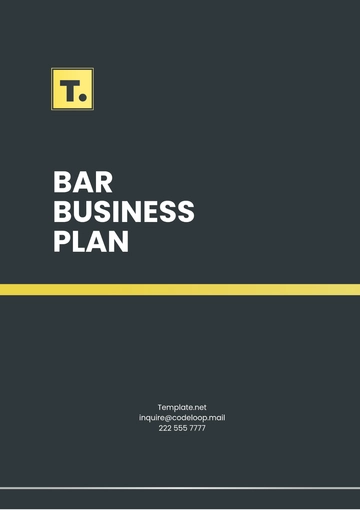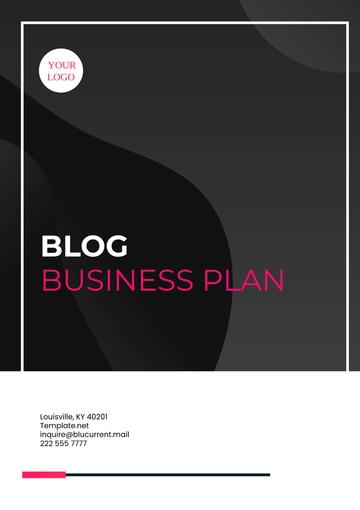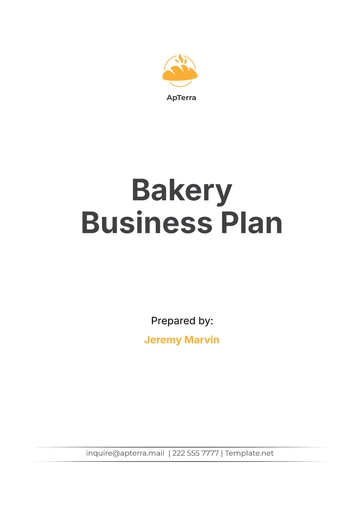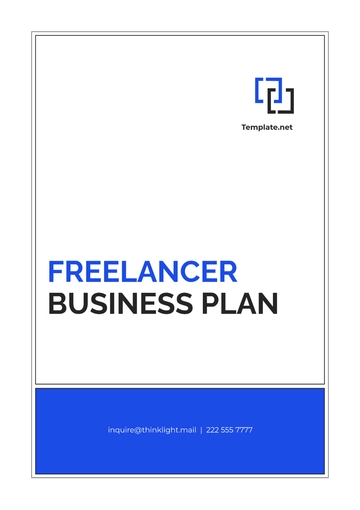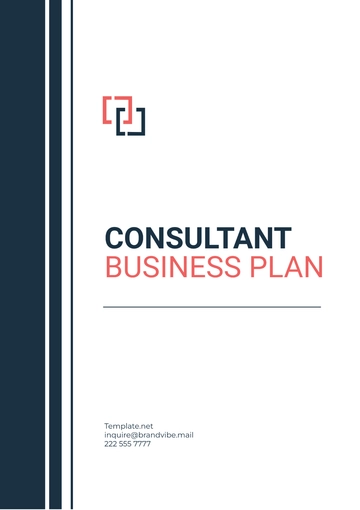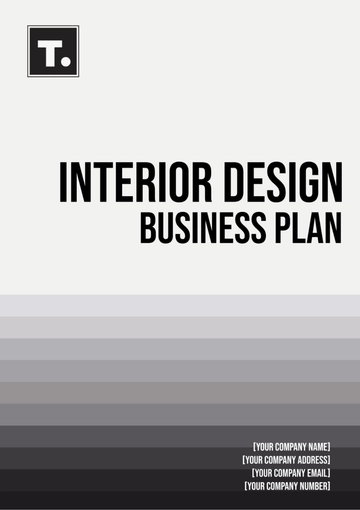Free Printable Auto Insurance Agency Business Plan
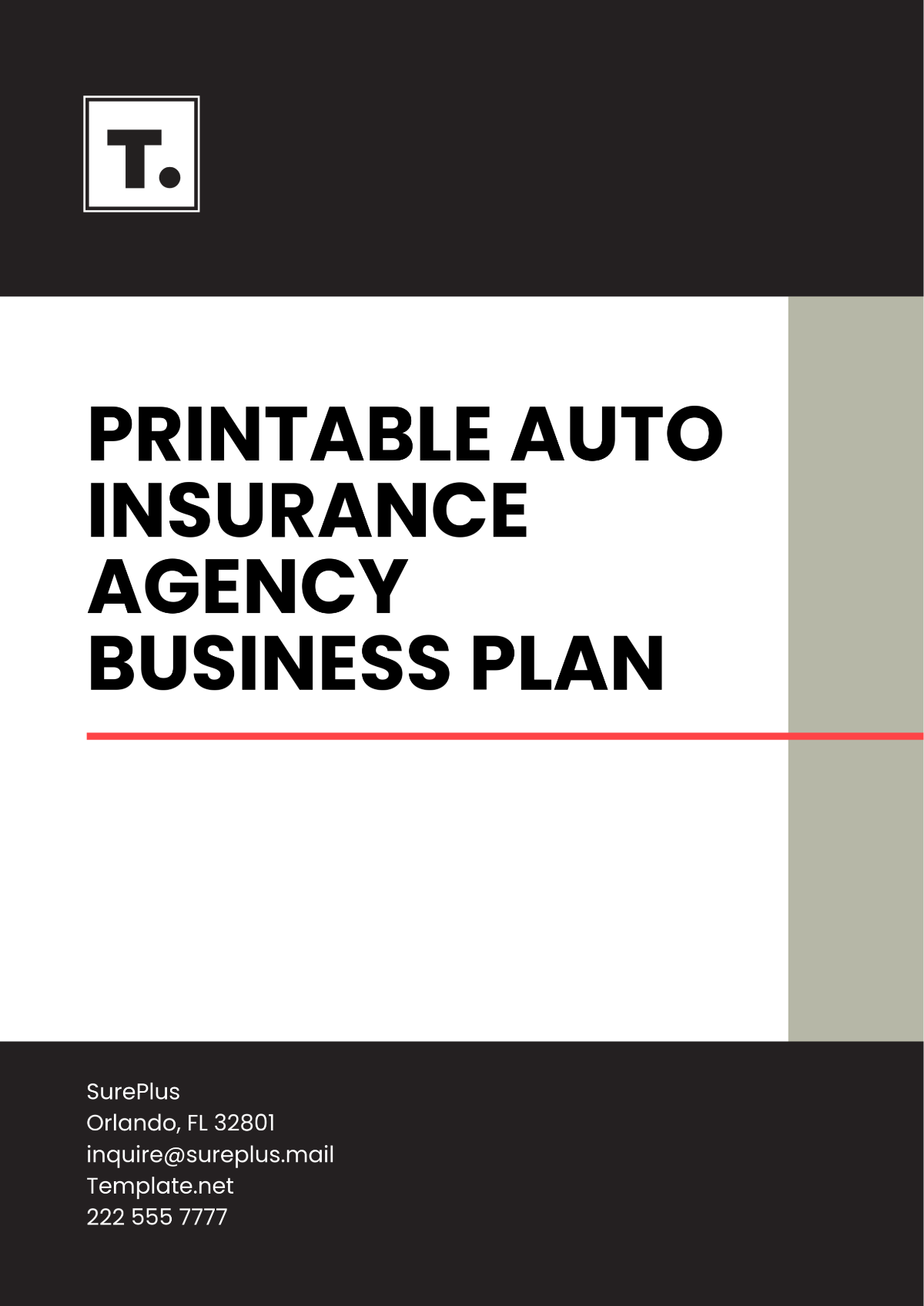
Prepared by: [Your Name]
Company: [Your Company Name]
Date: [Insert Date]
I. Executive Summary
The auto insurance industry is a vital part of vehicle ownership, offering protection and financial security to drivers. This business plan outlines a comprehensive strategy to establish a modern Auto Insurance Agency that caters to individuals, businesses, and specialty vehicle owners. With a focus on personalized services, advanced digital tools, and competitive pricing, the agency aims to become a trusted partner for clients seeking reliable and transparent insurance solutions.
A. Business Objectives
Establish a trusted auto insurance agency providing customized policies to meet diverse customer needs.
Achieve $1,000,000 in gross revenue within the first two years.
Build long-term relationships with clients through superior customer service and competitive pricing.
B. Mission Statement
To offer comprehensive and affordable auto insurance solutions, ensuring customer satisfaction through transparency, reliability, and exceptional service.
C. Business Overview
The agency will offer a wide range of auto insurance products, including liability, collision, comprehensive, and specialty coverage for classic cars, commercial vehicles, and rideshare drivers.
II. Business Description
A. Services Offered
Personal Auto Insurance (Liability, Collision, Comprehensive).
Commercial Auto Insurance for businesses and fleet vehicles.
Specialty Coverage (Classic Cars, Rideshare Drivers).
Roadside Assistance and Gap Insurance Add-ons.
Policy Comparison and Customization Services.
B. Target Market
Individual vehicle owners seeking affordable and reliable coverage.
Small businesses and fleet owners need commercial auto insurance.
Rideshare drivers require specialized policies.
Owners of classic and high-value vehicles requiring tailored coverage.
III. Market Analysis
A. Industry Overview
The auto insurance market is highly competitive, with consistent demand driven by mandatory coverage laws and increasing vehicle ownership. Digital tools and personalized services are becoming key differentiators.
B. Target Market Demographics
Urban and suburban vehicle owners aged 25–65.
Small business owners with fleets or commercial vehicles.
Rideshare drivers in metropolitan areas.
Classic car collectors and enthusiasts.
C. Market Trends
Growing demand for usage-based and on-demand insurance policies.
Increasing adoption of digital platforms for policy management and claims.
Rising awareness of the need for add-ons like Gap Insurance.
IV. Competitive Analysis
A. Key Competitors
Major national insurance providers (e.g., State Farm, GEICO).
Local insurance brokers.
Online insurance comparison platforms.
B. Competitive Advantage
Tailored coverage options and policy flexibility.
Strong focus on customer education and transparency.
Use of advanced digital tools for policy management and claims handling.
V. Marketing and Sales Strategy
A. Marketing Plan
Digital Marketing: SEO-optimized website, social media campaigns, and online advertisements.
Referral Program: Discounts for customers who refer new clients.
Community Engagement: Sponsorships and partnerships with local businesses and events.
B. Sales Strategy
Personalized consultations to assess customer needs and recommend the best policies.
Cross-selling add-ons like roadside assistance and accident forgiveness.
Building trust through prompt claims assistance and regular policy reviews.
VI. Operations Plan
A. Office Location
A centrally located office in a high-traffic commercial area with easy access for clients.
B. Technology and Tools
CRM software for client management and follow-ups.
Digital platforms for policy comparisons and issuance.
Cloud-based systems for secure document storage and access.
C. Staff and Roles
Agency Owner/Manager: Oversees daily operations and sales.
Licensed Insurance Agents: Assist customers in selecting and purchasing policies.
Customer Service Representatives: Handle inquiries, policy renewals, and claims support.
VII. Financial Plan
A. Startup Costs
Office setup and furnishing: $30,000.
Licensing and regulatory compliance: $5,000.
Marketing and advertising: $15,000.
Technology and software: $10,000.
Working capital: $40,000.
Total Startup Costs: $100,000.
B. Revenue Projections
Year 1: $500,000.
Year 2: $1,000,000.
Year 3: $1,500,000.
C. Funding Requirements
An initial investment of $100,000 is required to cover startup expenses and operational costs for the first six months.
VIII. Conclusion
The Auto Insurance Agency aims to address the evolving needs of vehicle owners by providing flexible, affordable, and reliable insurance solutions. With a strong focus on customer satisfaction and digital convenience, the agency is poised to establish itself as a trusted partner for auto insurance needs.
- 100% Customizable, free editor
- Access 1 Million+ Templates, photo’s & graphics
- Download or share as a template
- Click and replace photos, graphics, text, backgrounds
- Resize, crop, AI write & more
- Access advanced editor
You may also like
- One Page Business Plan
- Coffee Shop Business Plan
- Restaurant Business Plan
- Food Business Plan
- Real Estate Business Plan
- Executive Summary Business Plan
- Cover Page Business Plan
- Nonprofit Business Plan
- Daycare Business Plan
- Construction Business Plan
- Startup Business Plan
- Medical Business Plan
- Bakery Business Plan
- Service Plan
- Hotel Business Plan
- Catering Business Plan
- School Business Plan
- Healthcare Business Plan
- Transportation Plan
- Sports Plan
- Car Wash Business Plan
- Salon Business Plan
- Clothing Business Plan
- Farming Business Plan
- Boutique Plan
